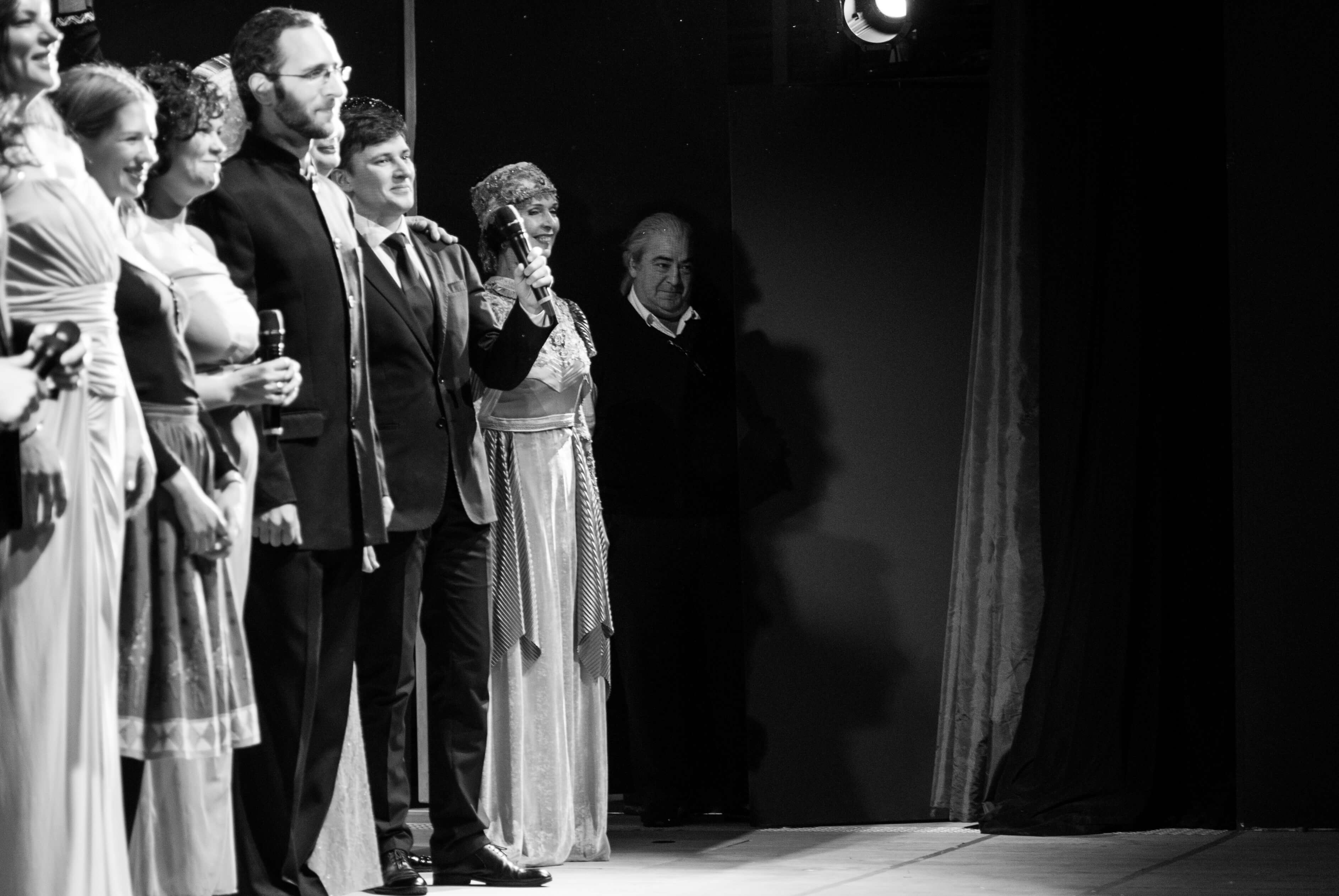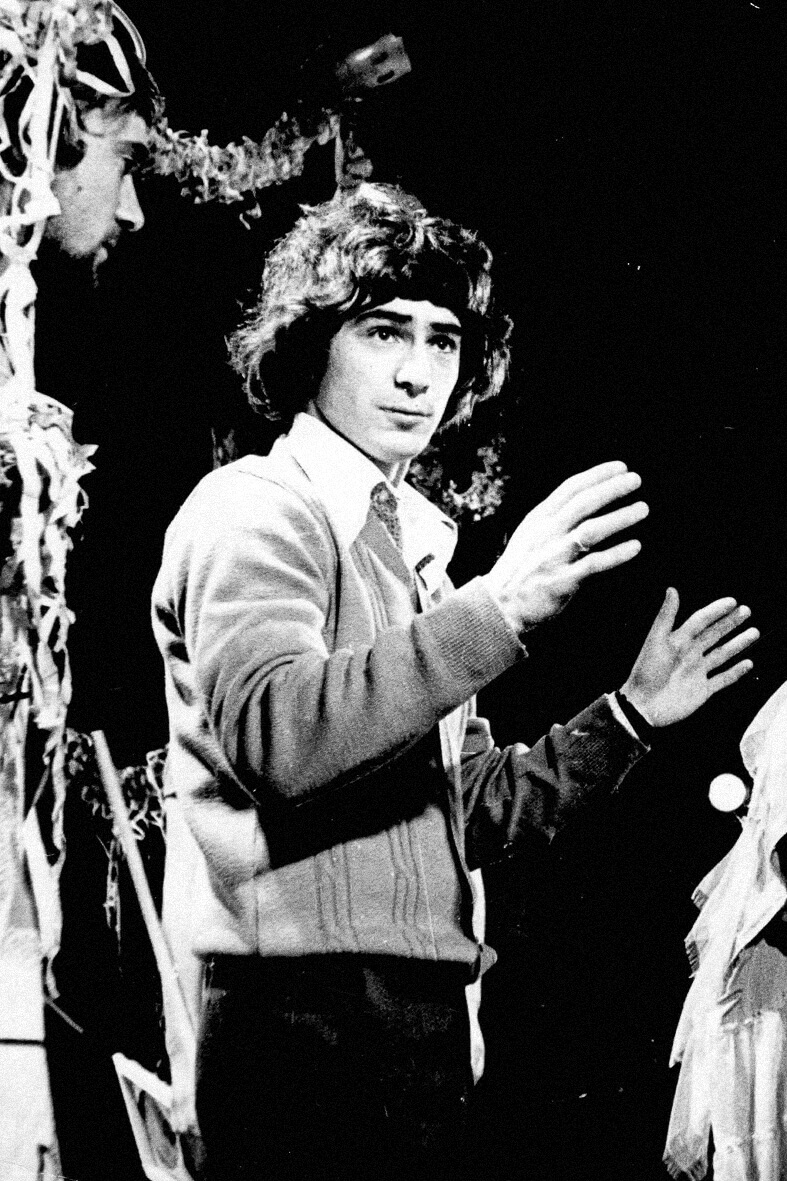Vitaly Malakhov is a Ukrainian theater director, artistic director of the Kyiv Drama Theater on Podil. There are more than 60 performances in his legacy. Vitaly is the laureate of the Shevchenko's National Prize of Ukraine in the field of art in 2008. People's Artist of Ukraine 2008.
Vitaly Yukhymovych was an anecdote man. He had an anecdote for every occasion. The man who made a municipal theater out of a studio theater and achieved that the Theater on Podil became the first theater built under independent Ukraine deserves respect. Surprisingly, in the Theater on Podil, I did not notice intrigues, they always passed by, and Malakhov, as a leader, was always for transparent relationships and did not like behind-the-scenes stories. In terms of PR and social media, I had complete creative freedom. Unlike many young leaders, he was not inherent in micromanagement — Malakhov trusted the work that others had to do — to others. Everyone has their own area of responsibility. Perhaps that is why we have a local joke that it is difficult to get into the Theater on Podil and just as difficult to leave it. People have been working here for decades and whole dynasties. Actors and others. Malakhov is a leader who did not interfere with work, no matter how strange it may sound, but in the creative sphere, this is a very important quality.
What is a director?
— You know, there are so many definitions: there are definitions of Zakhava, Nemirovich-Danchenko, and a dozen different ones. Director — as a position and as a function — is not constant. This is changing, transforming, so today we call some people the directors, and a thousand years ago — quite others. Once a director was a playwright, then an artist or the main actor, who assigned artists on mise-en-scène. Then, in the 20th century, personality became the main thing. The director separated into a separate profession. And now he does not count with anyone at all — neither with the author, nor the actors nor with anyone. A full-fledged owner. In general, I think this is a person who is, first of all, an organizer because theater is a synthetic action. But not a dictator, but an organizer who can ignite the idea, to convince. And secondly, it's probably an interpreter, but (laughs) only if he has interesting interpretations.

What are the taboos in the theater for you?
—Well, there are none if it's artistic. I could not, for example, use swearing, but if it is appropriate, if it is not an end in itself, then it may be a swearing… Nude? The same.
I will tell you: for me a taboo is a genocide. Any genocide: sexism, nationalism, disrespect for another person, inhumanity, fascism, communism.
You once worked with young Benyuk and Hostikoyev. Did you know that they would become luminaries?
— Yes! I knew.
Did you feel or see the potential?
— I saw the potential. Before that, I had to work with such personalities as Ada Rogovtseva, Bohdan Stupka, and I saw a lot of similar features. If you are a professional, you can recognize these traits.
What traits should a professional director have?
— Frankness. The director must be honest with the actors and the staff, say what you have to say, and immediately define all misunderstandings.
The director must think about directing, not about one's status, to seek the truth, and communicate with the world. After all, directing is a search for communication with the world. You get the text, you take it to work and try to understand why it is written like that, why a person does so, why? Why? Why? What worries you in these actions should affect others.
What are your role models?
— My father, my boss Vladymyr Oleksandrovych Nellie, my teacher, Leonid Artemovych Oliynyk, Molostova to some extent. I really liked Zakharov Mark Anatoliyovych. At one time I was with him in practice. Who else is such a director... Viktyuk with his originality!

You have decided to stage "1984", and now there will be "Martian Chronicles". How do you choose works for productions?
— I should like it.
And how can you guess its popularity?
I can't guess. I keep saying, we used to be at Karl Ird's in the Baltics, and I asked, "How do you choose a play?" And he said, "I do everything for myself" But since I live in this city, I walk these streets, I can hope that someone else will like it. Well, now I have my own things. I think it's important for the theater to bring some new information. Here in the "Vernissage", we tell in great detail the story of Richard's Castle. This may be a lengthy action, but I think it's a little different action.
Yes, now in the "Martian Chronicles" there is a small scene about fantasy. There I dug up a whole story about flat earth, a hologram of reality. I think it's very interesting. It is interesting in the process of working on the production to look for and discover something new about the world. And then share it with the viewer.
That is, there is no secret to staging bestsellers?
— I do not know.
Fiction in the theater will always be inferior to the cinema because it lacks theatrical means of expression. What do you stake on when you stage fiction in the theater?
— On the one hand, you are right, but on the other hand, if it snows in the movies, it does not surprise anyone. But when it snows on the theater stage…
Translated by Kateryna Kazimirova
Vitaly Malakhov is a Ukrainian theater director, artistic director of the Kyiv Drama Theater on Podil. There are more than 60 performances in his legacy. Vitaly is the laureate of the Shevchenko's National Prize of Ukraine in the field of art in 2008. People's Artist of Ukraine 2008.